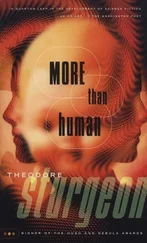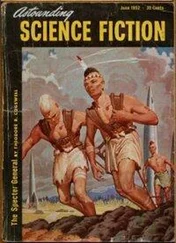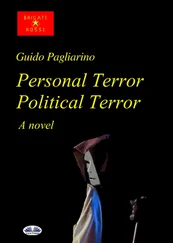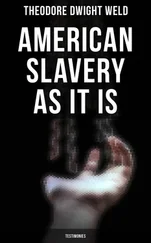“Don’t fool with me. I’m the Village Chairman and I know everything that’s going on around here. You set the children against Haya Fifkina for the simple reason that she’s a Jew. And that sort of behavior is subversive and punishable by law. Our free and liberty-loving regime has sent Haya Fifkina here to teach the children, not to be maligned by them.”
“What are you insinuating?” Kulik stood up. “Your accusations are absolutely unfounded, not to mention ridiculous. Haya Fifkina was welcomed here just like any other new teacher. And as far as the children are concerned, I know they’ve gotten out of hand, and first thing tomorrow disciplinary measures will be taken. But to imply that in some way I riled them up is absolutely preposterous.”
Cornelius kept up his attack. “You’re asking for trouble, Comrade Kulik. Take my advice and run the school like a devoted servant of the state. Teach the children the true spirit of revolution. And teach them to like Jews. Make them understand ours is the most democratic country in the world where everyone is equal and Jews are just as equal as anyone else.”
Cornelius had much more to say; he was determined to get Kulik to see things in the proper light. “We’re all one and the same, and I’ll prove it to you. Take, for example, the merchants of Pinsk. Just last week, weren’t they all rounded up and interrogated, then imprisoned equally? The Poles, the Ukrainians, the Jews — no one group got discriminated against. Hah! So there you have it, we are all equal!”
Kulik listened to Cornelius’s idiotic rant with increasing exasperation. He wanted to grab him by the scruff of the neck and hurl him out the door. His patience was wearing thin.
Cornelius went on. “You, comrade, are a product of a bourgeois society and you’re tampering with the minds of our young children, teaching them perversity and anarchy. You must prepare your lessons in such a way that the Party and our glorious leader Joseph Vissarionovich Stalin are above all else revered and praised. The children, especially the younger ones, must know how their parents suffered under Polish oppression and how Olivinski, the Polish tyrant-landowner, enslaved and demeaned them. They must understand that the new Soviet government is their great liberator and they must forever show their gratitude. The new regime not only cares about educating the masses, but also about doing away with illiteracy in the most backward of villages. Who do you think brought this microscope and the fish tank to the school? Our new regime, of course. They spent two thousand rubles on these items because they care. Allow me to say it again: subversion must be quashed at all levels to ensure our new system runs smoothly and productively. I, as a Soviet citizen, will do my utmost to make sure this happens.”
As this continued, Kulik completely lost track of what Cornelius was saying. He saw Cornelius’ thick, cracked lips moving soundlessly under his moustache. But the words fish tank and two thousand rubles caught his attention. He was curious to learn why the new regime had so generously parted with such a substantial sum of money. He said, “You mean to say the new school instruments were purchased by the government and sent here to our school?”
“Yes, that’s right.” Cornelius opened his eyes wide and blinked. “Our government is committed to providing the best education for all children of the Soviet Union, whether they live in urban centers or in backward, isolated villages. We’re all treated equally. The instruments were brought from Pinsk by car, and I myself unloaded the boxes and helped carry them into the school. The villagers were thrilled to see their children with such modern tools.”
Talking louder and louder and faster and faster and becoming more impassioned, as the words flew out of his mouth, it was not long before he let the truth slip.
“Yes, it was a great job to raise that money and everyone participated. The people worked hard to enable the new regime to buy the instruments for the school. It was our regime’s idea, and if not for our regime, we would have nothing. A meager amount was requested from every household, and naturally the people complied. And why did they comply? Because the people are the government — it’s all one and the same. The government is run by the people, the money is collected from the people, given out by the people, for the people.”
Kulik listened with mounting anger and contempt. He now understood everything. He said bitterly and sarcastically, “So it is we the people , or rather, we the government, who, according to you are one and the same, who are giving us our fish tanks whether they have the money or not? People like Paraska, for instance? Is she part of the government?”
Cornelius’ small black eyes flickered, filled with rage. He said sharply and disdainfully, “How dare you challenge the government. You are a subversive, and I can see by the light in your eye that you’re not one of us.” Then a warning, “The frozen wastelands of Arkhangelsk are not far off, in fact they’re beckoning you as we speak. And in case you didn’t know, the NKVD is already hot on your trail.”
Kulik’s heart thudded, “Why, that’s ridiculous. I’m a simple, humble teacher and I have had no political affiliation whatsoever other than with the Communist Party.”
Cornelius laughed ironically. “You don’t fool me for one minute. Even Kokoshin and Leyzarov are on to you.”
“Did they send you here? Is that why you’re here?”
“No one sent me here. You think I’m stupid, don’t you? I came here because I know what’s going on. I’ll have you know I have a good nose; I can smell a traitor when I see one. I didn’t make my way up the Party ladder because I’m thick in the head; no, I made it because I get the job done. I can see where your sympathies lie as clearly as I can see the light of day. You claim to be of peasant stock, which may be true, but in spirit you’re a bourgeois. We know about your past. In Vilno you obtained a bourgeois education and associated with subversives. And subversives are the great enemies of Communism and must be dealt with immediately. We live in the most democratic country in the world, where the masses rule. The workers have finally overthrown the ruling classes, and we must fight to preserve this wonderful new life of ours, no matter what the cost.”
Kulik lost all self-control, and flew at Cornelius. “You’re nothing more than a buffoon! I’ve heard enough. Get out of here before I throw you out!”
Cornelius’s face lit up with a sardonic smile. “Hah! I see I’ve touched a nerve. The aloof and self-important headmaster has lost his temper. Just like a balloon he went ‘pop!’” Then with a snarl, “We’ll get you, you wait and see. Already you’re being watched. It won’t take long now. And a word of advice, if you ever dare utter another word against Jews, it’ll be off to NKVD headquarters with you!”
“Get out of here! Now!” Kulik almost choked with rage. Lunging forward, with all his strength he grabbed Cornelius by the collar, and punched him in the face, knocking him down.
“Help! Murder! Help!” Cornelius cried. He managed to scramble to his feet and make a run for the door. But he was no match for the stronger and younger Kulik, who quickly tripped him up, dragged him across the floor, and hurled him out the front door into the yard. As he landed in the snow, Cornelius cursed and howled at the top of his lungs, “Damn you, bourgeois! Your head will roll for this!”
Kulik slammed the door and bolted it shut.
To everyone’s surprise, pinned to the wall outside the grade one classroom was a long sheet of paper with an elaborate, detailed cartoon drawn by a steady and capable hand. It was a caricature of a young boy with tousled hair and an upturned nose, who clutched a ruler in his left hand, aiming it like a spear at a woman. The boy wore a fierce, nasty expression and bore a strong resemblance to Ohrimko Suchok. The woman, skinny with frizzy hair, looking very much like Haya Fifkina, was scrambling through a window trying to escape from him. Several children were penciled in at the bottom, crouched on all fours, peering fearfully from under their benches. Under the drawing was written:
Читать дальше












